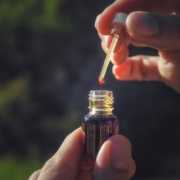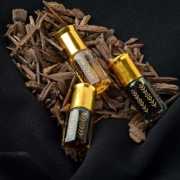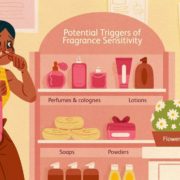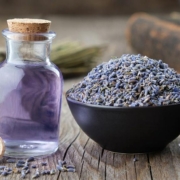Essential Oils and Emotional Health
There is a subtle but strong connection between essential oils and emotional health. This is the reason why essential oils have historically been used to promote mood and emotional well-being for thousands of years – yay, you probably have heard of “emotional aromatherapy” too.
The active compounds found in aromatic essential oils have been known to possess significant pharmacological properties that can influence brain chemistry responsible for how a person feels, thinks, and responds. Curious to know how they work? Keep reading to learn more.
Ahead we’ll explore the link between essential oils and emotional health from a little bit scientific standpoint. But before we get into how essential oils can help with managing emotions and their associated issues, it’s worth knowing what exactly essential oils are. So, let’s get started.
Table of contents
-
What are essential oils?
-
What is emotional aromatherapy?
-
How do essential oils help emotions? The science of emotional aromatherapy
-
Can essential oils change your mood?
-
What essential oils raise serotonin levels?
-
Which essential oils promote happiness?
-
What essential oil helps to stop overthinking?
-
Which essential oil is best for stress and anxiety?
-
Safety precautions for using essential oils
-
Final words
What are essential oils?
Essential oils are natural aromatic extracts derived from various plant parts such as leaves, flowers, roots, bark, and fruits. They are rich in plant compounds that yield natural scents. Each essential oil is unique in its chemical composition which sets it apart from the others. In addition to producing fragrance, plant chemicals found in essential oils have significant healing properties too, making them widely used in aromatherapy, a holistic healing practice that has been used for thousands of years to promote physical, mental, and emotional health and well-being.
What is emotional aromatherapy?
Emotional aromatherapy is the use of aromatic compounds, especially essential oils, to promote one’s emotional well-being. Specific essential oils are used to interact with the brain’s emotional centers, primarily the olfactory and limbic systems, enabling a person to calm, energize, and manage emotions by choosing a positive way of feeling, thinking, and responding.
How do essential oils help emotions? The science of emotional aromatherapy
When inhaled, aroma molecules found in essential oils get recognized by the olfactory receptors present in the nose and processed by the sense of smell or olfaction. From olfactory nerves, they travel directly to the limbic system, the part of the brain comprising various yet closely interconnected structures, primarily the amygdala, and hippocampus, that are responsible for regulating the expression of emotions such as happiness, anger, fear, and sadness.
By favorably impacting the emotional center of the brain, essential oils may help people better control their emotions and also improve the ways how they think, feel, and respond.
Can essential oils change your mood?
Research suggests that essential oils may help with improving mood and its associated symptoms. For instance, in one study performed by Monash University scientists have concluded that certain essential oils such as lavender and rosemary have significant antioxidant actions on the brain, which may benefit mood and improve symptoms in people with anxiety and depression [1].
What essential oils raise serotonin levels?
Certain essential oils such as lavender, lemon, and bergamot essential oils may stimulate the brain to release “happy chemicals” like serotonin and dopamine, making them highly beneficial for enhancing mood and lowering stress and anxiety.
Which essential oils promote happiness?
A number of essential oils, especially those with citrus scents, have been found beneficial to promote happiness and peace of mind. But every person is different with unique triggers and memories and thereby, responses to essential oils could be obviously personalized. However, here’s a list of some common essential oils found useful to assist happiness:
Essential oils for happiness
- Lemon
- Rose
- Lavender
- Jasmine
- Bergamot
- Neroli
- Orange
- Ylang ylang
- Frankincense
What essential oil helps to stop overthinking?
Essential oils known for calming effects may help with alleviating overthinking by promoting emotional balance and inner harmony. They may include chamomile, lavender, vetiver, frankincense, and bergamot essential oils just to name a few.
Which essential oil is best for stress and anxiety?
There are a number of essential oils that work wonders for stress and anxiety, typically those with calming effects work well to produce an anxiolytic, anxiety-reducing, effect on the body and mind. And of course, it depends on personal health status, including age, gender, and lifestyle, which one will work best for an individual.
Here’s a short list of essential oils for stress and anxiety so you can easily choose your best one:
Best essential oils for stress and anxiety
- Lavender
- Rosemary
- Bergamot
- Orange
- Valerian
- Geranium
- Jasmine
- Patchouli
- Eucalyptus
- Ylang-ylang
- Rose
- Clary sage
- Roman chamomile
- Neroli
- Sandalwood
- Frankincense
Safety precautions for using essential oils
Essential oils have huge potential to provide various benefits for emotional health. But it is vital to use them responsibly and safely. It is always best to use essential oils as a professional aromatherapist advises.
Here’re a few things to keep in mind when using essential oils:
- The first and foremost important thing is to source essential oils from a reliable ethical brand known for purity and quality (here you can see our Guarantee of naturality).
- Please always consider using them in diluted forms unless or until you are told for raw use.
- Beware of sensitive areas such as the eyes, inner ears, and inner nose when using them externally.
- Consult a medical practitioner for internal and therapeutic purposes.
- Pregnant and nursing women are not recommended for using essential oils without prior medical permission and guideline.
- Essential oils must be kept in areas not accessible to children, especially those under eight years of age.
- Some people may experience allergic reactions or side effects and to avoid them, performing a small patch test on the skin and consulting a professional aromatherapist or healthcare provider is best prior to use them.
Final words
Essential oils have historically been used for improving emotional health. They can help in many different ways ranging from overcoming stress and anxiety to increasing mood to improving the overall sense of well-being. But it is important to use them appropriately to enjoy the maximum benefits of essential oils. It is best to discuss with a professional aromatherapist about the safety profile of essential oils for your specific health status prior to using them
Disclaimer: This article is produced only with the aim of providing general information to our readers and is never intended to be used to treat, cure, or diagnose any disease. However, in order to use any part of this content, prior professional advice is compulsory.
References:
- News, Neuroscience. “Essential Oils Can Be Beneficial for Your Health and Mood.” Neuroscience News, 11 Aug. 2021
- Anatomy of the brain

























It was like strolling through a serene, aromatic garden of wisdom while reading this article. The profound relationship between essential oils and our emotions and mental states was eloquently explained. I have seen firsthand how even minor adjustments, like adding bergamot or lavender to a daily routine, can have a significant impact on lowering stress and overanalyzing. For this reason, I began using natural fragrances to relieve stress. I appreciate your thoughtful and educational post.